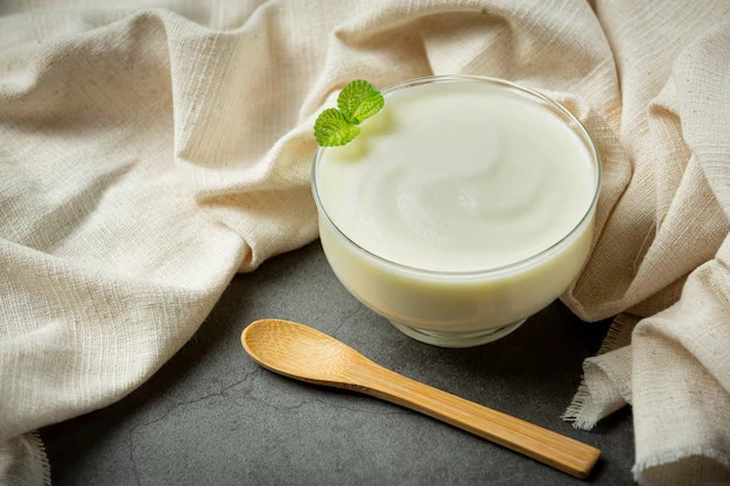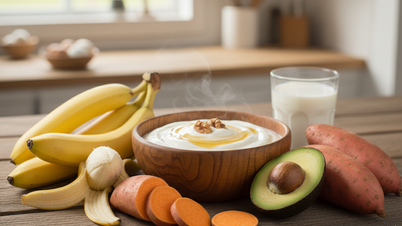
Yogurt is a healthy food - Illustration photo
What makes a good yogurt?
With so many different types and flavors of yogurt available in the market, it can be difficult to choose the right one. When making your top choice, you can choose different types of yogurt based on the following criteria:
- Protein content : Good yogurt should be rich in protein, which is beneficial for satiety and muscle mass.
- Sugar content : Yogurt should have little or no added sugar. Consuming too much added sugar provides “empty calories” and has been shown to increase the risk of chronic diseases such as type 2 diabetes, obesity, cardiovascular disease, non-alcoholic fatty liver disease, as well as cancer and cognitive decline.
- Live and active probiotics : Also known as probiotics, these are beneficial microorganisms for the intestines, converting sterilized milk into yogurt during the fermentation process.
- Made from whole milk, low-fat milk, or skim milk : Each type of milk used to make yogurt has its own pros and cons, but whole-fat yogurt is more filling than low-fat yogurt, and is thought to be linked to a lower risk of obesity and metabolic syndrome than low-fat yogurts.
- Ingredient quality : A "standard" yogurt should contain few additives (like preservatives) and use real fruit instead of added sweeteners.
What is Greek yogurt and why is it considered a good choice?
Greek yogurt is made from fermented milk that has been strained to remove most of the whey and water, creating a thicker, smoother texture that is higher in protein than regular yogurt. It has minimal ingredients, contains probiotics, protein (double the protein of regular yogurt), and little added sugar.
Products come in fat-free, low-fat (or reduced-fat) and full-fat varieties, all of which can be enjoyed according to preference and recipe.
Caroline Passerrello, an associate professor at the University of Pittsburgh, told Health magazine that her top choice is plain or low-fat Greek yogurt made with low-fat milk. She likes Greek yogurt because it's low in added sugar, has live and active cultures, and is high in protein.
“If someone tries 0% fat Greek yogurt and doesn’t like it, they can try full-fat,” adds Taub-Dix, host of the podcast Media Savvy, creator of the website BetterThanDieting.com, and author of the popular nutrition book.
"This type of yogurt is often creamier, smoother, and even with the added fat, it's still relatively low in calories."
Nutritional value of Greek yogurt
Greek yogurt is a great source of protein, calcium, and healthy fats. A 3/4 cup serving of whole-fat Greek yogurt contains 6 grams of fat, 16 grams of protein, 5 grams of sugar, and 170 mg of calcium, which is 15 percent of your daily calcium needs.
But depending on your preferences, don't be afraid to experiment with nonfat, low-fat, and whole-fat yogurts to see which best suits your taste buds, health goals, and recipes.
Source: https://tuoitre.vn/sua-chua-tot-cho-suc-khoe-nhung-loai-nao-la-tot-nhat-20250817193124639.htm










































![[Photo] General Secretary To Lam and National Assembly Chairman Tran Thanh Man attend the 80th Anniversary of the Traditional Day of the Vietnamese Inspection Sector](https://vphoto.vietnam.vn/thumb/1200x675/vietnam/resource/IMAGE/2025/11/17/1763356362984_a2-bnd-7940-3561-jpg.webp)







































































Comment (0)